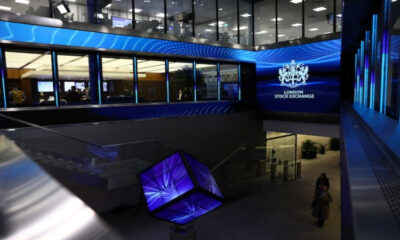Entertainment
Brit Awards 2025: Music, AI Performances, and Digital Stage Evolution

The Brit Awards 2025 marked a turning point in the evolution of live entertainment. Long celebrated as one of the most influential nights in the global music calendar, this year’s ceremony showcased more than just chart-topping artists. It became a celebration of how technology, artificial intelligence, and digital design are changing the very nature of performance.
In an era where the boundary between human creativity and machine intelligence continues to blur, the Brit Awards offered a glimpse into the future of music. Performers embraced AI-generated visuals, interactive lighting, and immersive soundscapes that responded in real time to vocals and movement. The result was a show that blended emotion, innovation, and spectacle in ways never seen before on the British stage.
Artificial Intelligence and the Future of Performance
Artificial intelligence played a central role at the Brit Awards 2025, reshaping the creative process and redefining what live performance can mean. Several artists collaborated with AI systems to design visuals, compose harmonies, and choreograph stage sequences. Rather than replacing human talent, AI served as a creative partner, expanding artistic possibilities.
One of the most talked-about moments of the night involved a leading British pop artist performing alongside an AI-generated holographic version of their younger self. The seamless interaction between the live performer and their digital double captivated audiences and raised new questions about identity, nostalgia, and authenticity in music.
Behind the scenes, AI-driven systems were used to enhance sound engineering and visual synchronisation. Algorithms analysed crowd reactions, adjusting lighting patterns and camera angles in real time to heighten audience engagement. The production team described this as a collaborative dialogue between technology and performance, where data became another instrument in the creative orchestra.
The growing use of AI in live music also points to broader trends in the industry. Musicians are increasingly experimenting with machine learning tools to create adaptive soundscapes, while producers use AI to generate custom backdrops and effects that evolve throughout a concert. Far from diminishing human artistry, these innovations are creating new forms of expression that push performance beyond traditional boundaries.
Digital Stagecraft and Immersive Design
The visual design of the Brit Awards 2025 was an event in itself. The stage featured dynamic LED architecture, holographic projections, and augmented reality layers that transported audiences into different digital worlds with each performance. Instead of static backdrops, the production employed real-time motion sensors that transformed movement into interactive visual art.
One standout segment saw a renowned electronic duo perform inside a fully digital environment rendered on massive screens surrounding the stage. As they played, the visuals responded to rhythm and tempo, creating a living, breathing landscape that pulsed in harmony with the music. For audiences both in the arena and online, it was a multisensory experience that felt equally cinematic and personal.
Virtual reality also played a significant role. Viewers tuning in from home through VR-enabled platforms could explore multiple camera angles, move through virtual spaces, and experience performances from unique perspectives. This innovation reflected the broader transformation of live entertainment into an interactive, hybrid medium where physical and digital audiences coexist.
Lighting design reached new artistic heights, combining laser mapping with 3D projection to create the illusion of floating structures and infinite depth. The Brit Awards’ production team described the set as a “digital playground” designed to react dynamically to each artist’s emotional tone and stage energy.
The result was a visual and technological spectacle that symbolised the convergence of art, music, and data science. London has long been a hub of creative experimentation, and this year’s Brit Awards confirmed the city’s role as a global leader in merging technology with live performance.
Cultural Impact and Industry Transformation
Beyond the dazzling displays, the Brit Awards 2025 underscored a deeper cultural shift in the entertainment industry. Technology is no longer a background tool but a defining creative force. Artists are using digital innovation to connect more deeply with audiences, extend the emotional range of performances, and reimagine what it means to perform live in a connected world.
The integration of AI also raises important ethical and artistic questions. As machine learning takes on a larger role in composition, production, and stage design, debates continue about authorship and originality. Yet for many artists, these technologies represent collaboration rather than competition. The ability to personalise shows, adapt to audience feedback, and integrate digital art in real time is opening new horizons for musical creativity.
Industry leaders believe that what was once experimental is rapidly becoming mainstream. Festivals and tours are already incorporating similar AI-enhanced stage systems and immersive design techniques pioneered at this year’s Brit Awards. The event may well serve as a blueprint for future large-scale performances, where human artistry and artificial intelligence merge seamlessly to create experiences that feel both intimate and monumental.
Conclusion
The Brit Awards 2025 will be remembered not only for its musical triumphs but also for redefining what live performance can be in the digital age. The fusion of technology, creativity, and audience participation transformed the event into a living work of art. Artificial intelligence and immersive stagecraft demonstrated that technology can enhance, rather than replace, the emotional power of live music.
As the global entertainment industry looks to the future, the lessons from this year’s Brit Awards are clear. Innovation and artistry are no longer separate realms but interdependent forces shaping a new era of performance. London once again stands at the forefront of this cultural evolution, proving that the spirit of creativity thrives wherever imagination meets innovation.






















